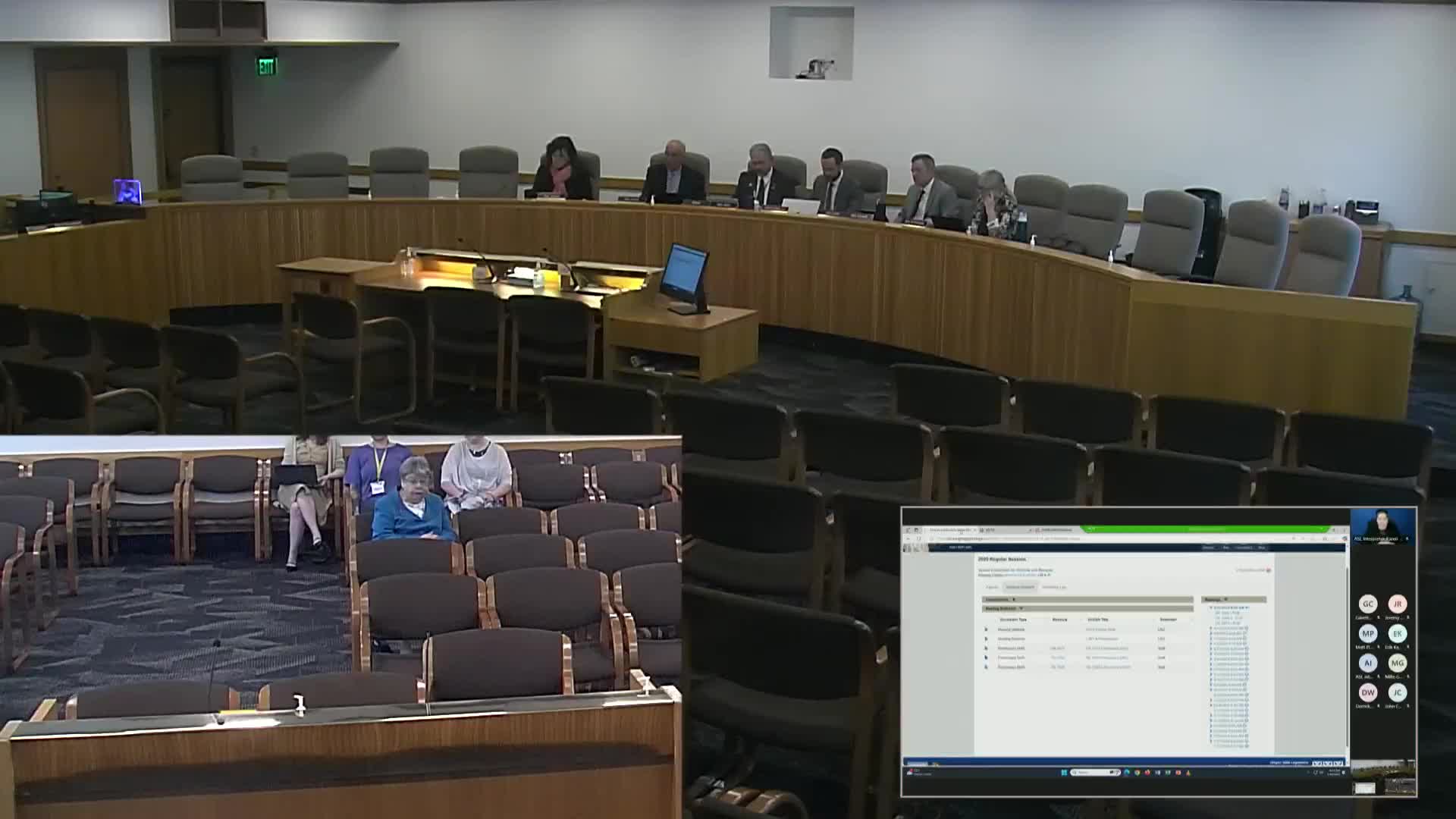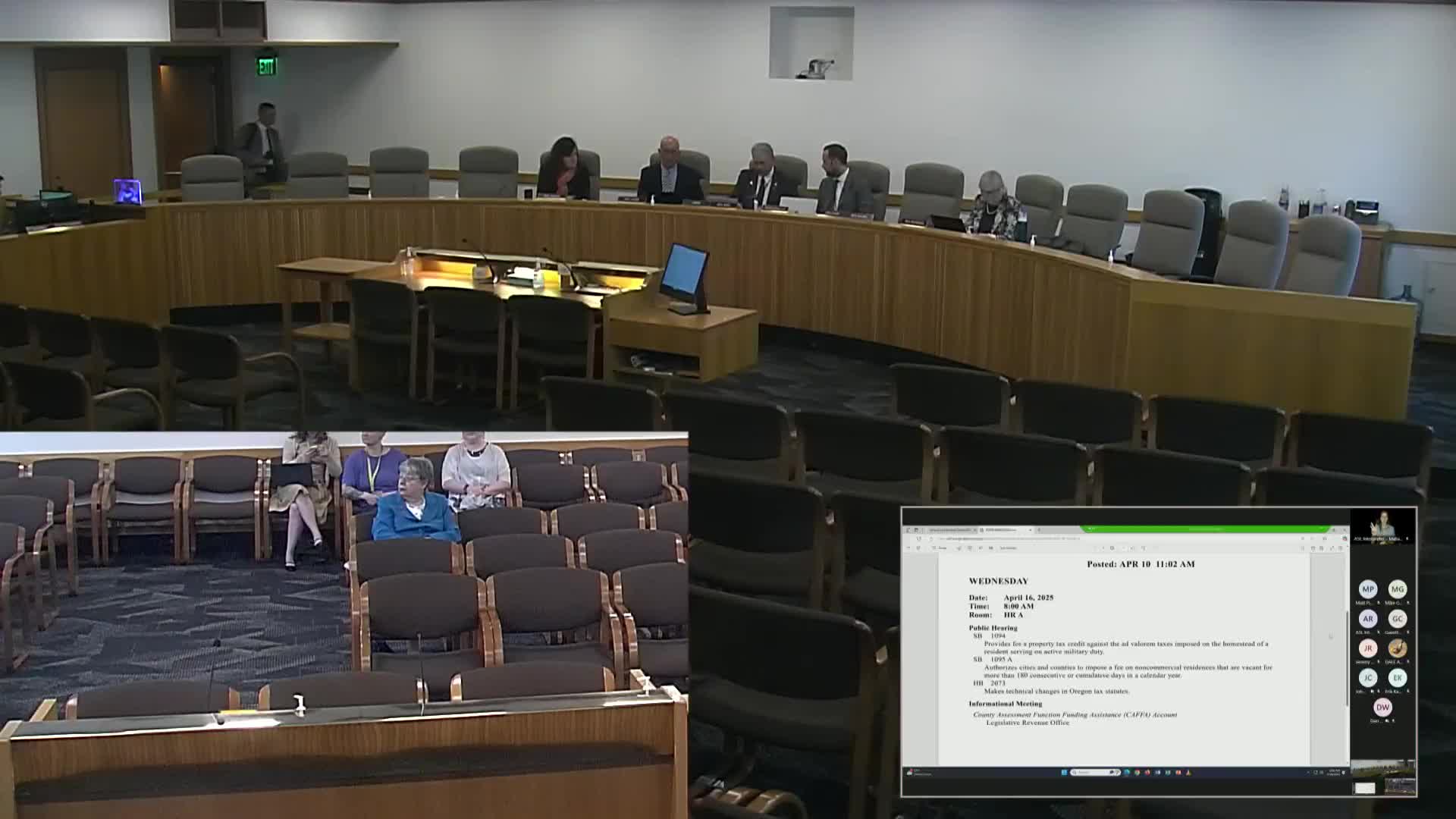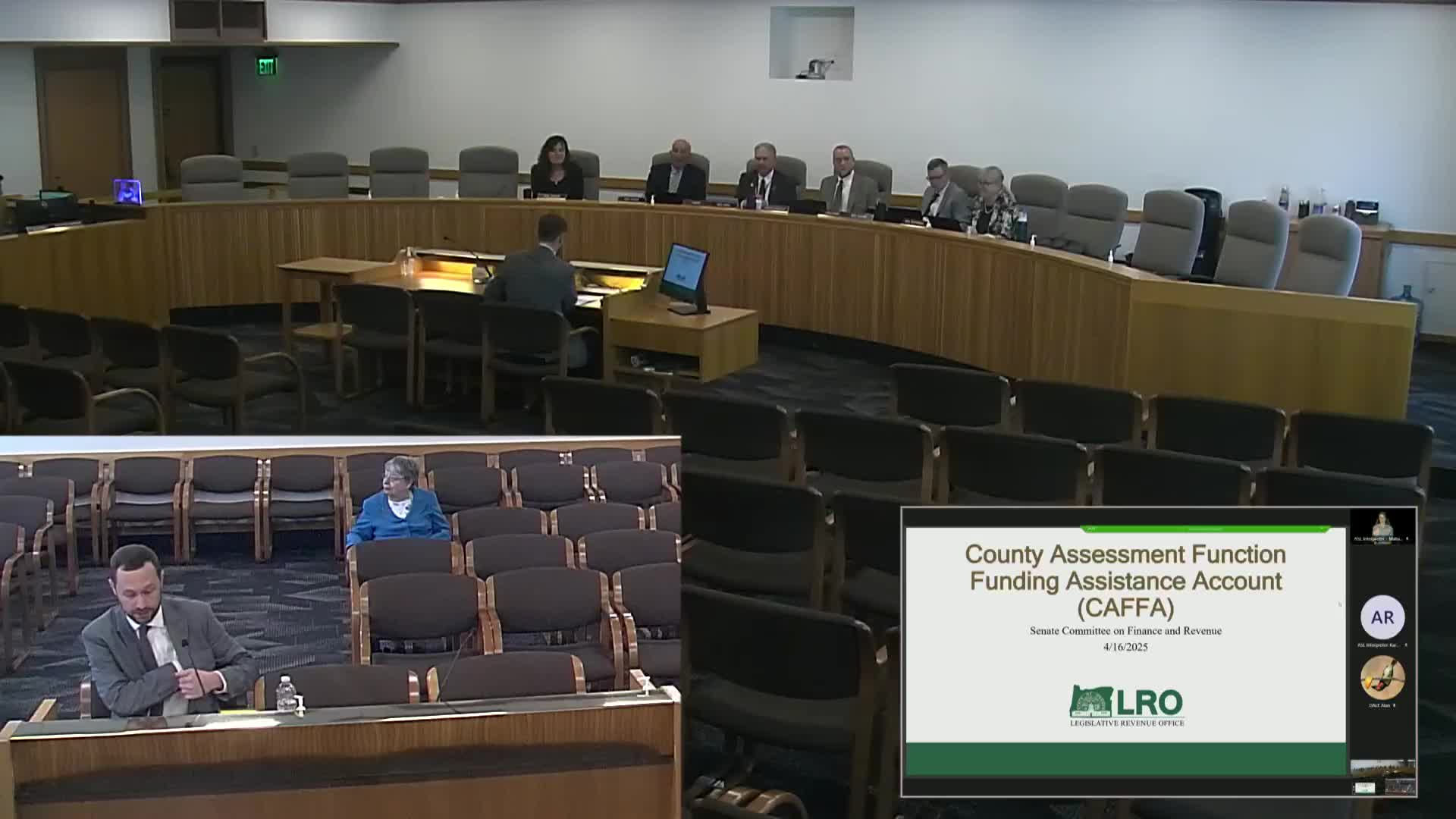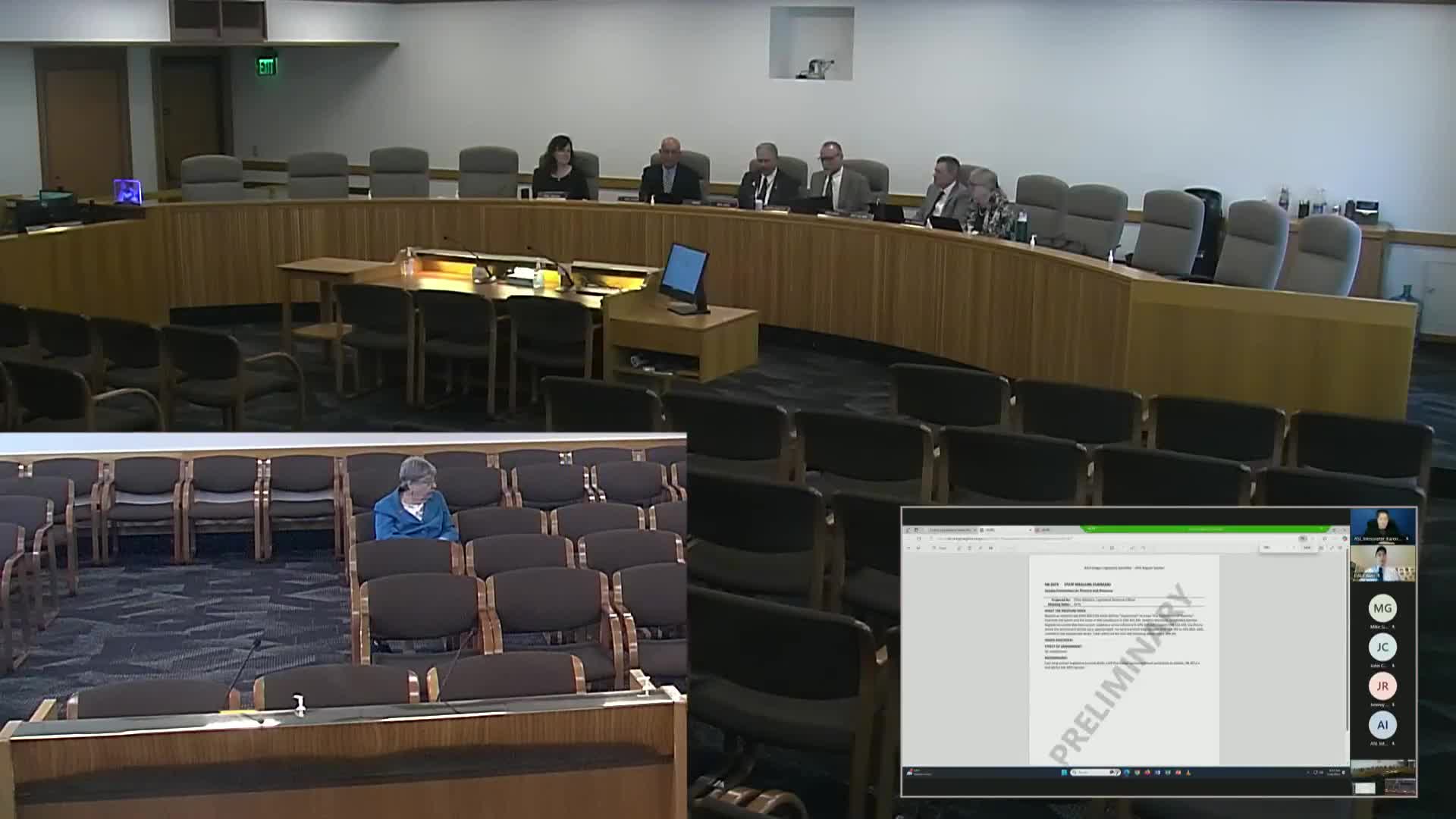Article not found
This article is no longer available. But don't worry—we've gathered other articles that discuss the same topic.

Senate committee hears competing views on allowing local vacancy fees for second homes

Senate committee hears plan to replace partial property tax exemptions for veterans with $1,750 credit

Informational: state CAFA deposits fall while county assessment costs rise, DOR official tells committee

